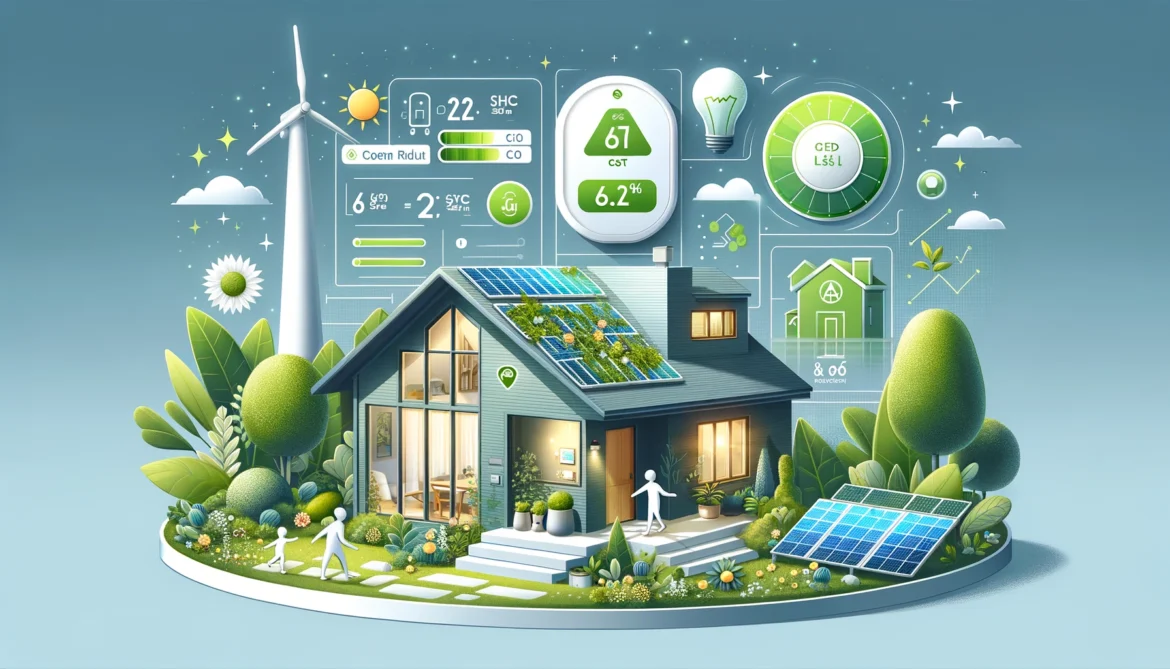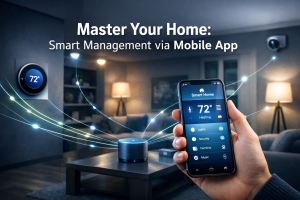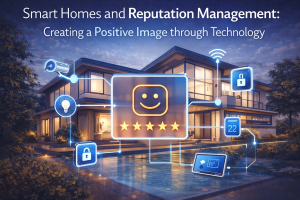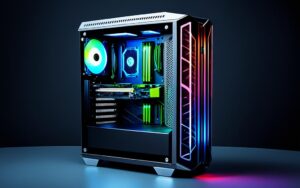Table of Contents
Smart homes have emerged as technology and home management have advanced over the previous decade. These high-tech houses improve energy efficiency and save monthly costs, not merely by controlling your TV from your phone. An intelligent house combines smart thermostats, lights, security systems, and appliances to save energy and money. This connection automates processes and monitors energy usage in real time, allowing homeowners to minimize consumption immediately. Smart homes reduce energy usage and optimize daily operations, making them beneficial for the earth and the checkbook.
Critical Components of a Smart Home
Smart homes are built on sensors and algorithms that predict and respond to your lifestyle. For instance, smart thermostats are far more sophisticated than manual ones. They understand the homeowner’s habits and optimize heating and cooling systems for comfort and efficiency, lowering energy bills. Smart lighting systems use sensors and timers to alter lighting based on occupancy and ambient light, saving energy. Advanced energy management systems combine these devices and give a dashboard picture of energy use, allowing homeowners to optimize energy use in new ways. These systems may even identify energy-hogging equipment and advise solutions to boost house efficiency. Innovative technologies let homeowners regulate energy use and create a more responsive and flexible living environment.
Reducing Heating and Cooling Costs
Heating and cooling are major energy users in homes. Smart thermostats, a key component of smart home technology, transform heating and cooling energy use. These devices learn your preferred temperatures and home hours to optimize heating and cooling only when required. In addition to scheduling, these thermostats can detect occupants and change the temperature based on humidity and weather.
However, installing smart thermostats can involve additional costs and time. If you’re a student looking to save money, consider self-installation. However, ensure it does not interfere with your study time. To help you choose a reliable service and avoid scams, ensuring your academic success isn’t compromised by home improvement projects, an academic journal featured a comprehensive ukwritings review.
Optimizing Energy Use with Smart Thermostats
Smart thermostats manage the home’s environment on schedule and adjust to the homeowner’s lifestyle in real time. These gadgets have sensors that detect occupancy and combine with other home systems to maximize comfort and energy efficiency. To save energy, the thermostat may cut off heat in an open window. Geofencing lets the thermostat know when you’re coming home and activates systems just in time, saving energy. Today’s energy-conscious society needs these sophisticated features for ease, comfort, and energy savings.
Enhancing Lighting Efficiency
Even while lighting seems unimportant, it affects residential energy consumption. Smart lighting technology has made light more efficient and adaptable. To unemployed professors promo code from reddit users on smart lighting systems, homeowners can explore various online platforms and retailers. Smart lighting systems use LED lights that adjust brightness and color based on the time of day or room activities. The use of artificial lighting may be significantly reduced by programming these systems to dim or brighten with natural light. They may also be controlled remotely via smartphones, allowing homeowners to turn lights on and off from anywhere, enhancing security and eliminating energy waste. Smart lighting sensors detect movement to turn on lights only when rooms are inhabited. Since this automation eliminates energy waste from accidentally keeping lights on, power expenses can drop significantly.
Benefits of Smart Lighting Systems
Smart lighting is essential in lowering residential energy usage, and it is not just convenient. No energy is wasted on vacant or well-lit places when lighting is automatically adjusted to occupancy and daylight. Smart lighting may be set to react to odd behavior when integrated with other home systems like alarms and motion sensors, improving security. Studies demonstrate that good lighting enhances mood and productivity, making bright lighting a comprehensive approach to home improvement. Smart lighting reduces energy expenses and enhances the quality of life for homes.
Leveraging Smart Appliances for Greater Efficiency
Given their regular use and high power needs, appliances consume a lot of energy. Smart appliances improve energy management and operational efficiency. Refrigerators, ovens, dishwashers, and washing machines may be set and monitored via smartphones or other devices. They can modify their cycles to utility rate swings and choose the most energy-efficient settings. Smart washing machines can work when power is cheaper or the load is at its ideal weight, saving energy and money. Usage information from these products helps homeowners conserve energy by changing their habits.
Integrating Renewable Energy Solutions
In an age of sustainability, combining renewable energy sources with smart home technologies boosts energy efficiency. Solar panels may be linked to household energy management systems to monitor and regulate solar energy consumption. Smart inverters maximize solar power advantages by utilizing electricity during peak hours or storing it. These systems also automatically transition between solar and grid electricity based on availability and cost, optimizing energy consumption.
If you’re considering investing in such technologies, guidance and detailed information might be necessary. At the same time, you could refer to writing services where experts can write any type of document about solar panels and energy systems. Be cautious. An honest review on LinkedIn can provide valuable insights about the quality and reliability of these services before making a decision. This approach ensures you are well-informed, enhancing your ability to choose the right solutions for your sustainable home.
The Role of Smart Inverters in Solar Energy Systems
Smart inverters are essential for solar energy management. These gadgets may convert DC electricity to AC and use stored energy based on household energy usage patterns. Dynamically managing power makes houses self-sufficient and reduces peak load demands on the grid, lowering electricity bills. Smart inverters may also provide extensive energy production and consumption data, allowing homeowners to make educated energy usage decisions and sell excess energy to utility companies for additional cash. To enhance these benefits, it’s wise to utilize additional services that boost your business. However, always verify the reliability of these services; for instance, by searching “Is papersowl.com safe?” you can assess the credibility of a particular service provider.
The Financial and Environmental Benefits of Smart Homes
There are significant cash benefits to using smart home technology. Homeowners can see a noticeable drop in their energy bills because smart gadgets use less power and make the best use of usage times. Depending on how much you use and how much energy costs, these savings can quickly cover the cost of the smart technology you bought. When people use less energy, they release fewer carbon fumes into the air. It helps the fight against climate change. Smart homes save money and help the environment by reducing waste and taking better care of energy use.
Future Prospects of Smart Home Technology
Smart home technology has a bright future as AI and machine learning improve smart gadgets. Smarter energy management systems may react to user trends, forecast future demands, and adapt the home environment with AI. It might lead to more customized, energy-efficient houses that adapt to their owners’ lives in real time.
Conclusion: The Smart Path to Energy Efficiency
Adopting smart home technologies is a significant step toward sustainable and affordable living. Homeowners may obtain unparalleled energy control by networking smart devices like thermostats, lighting systems, appliances, and energy management systems. This control reduces energy waste and improves house functioning and comfort, saving money.









